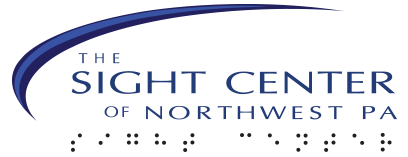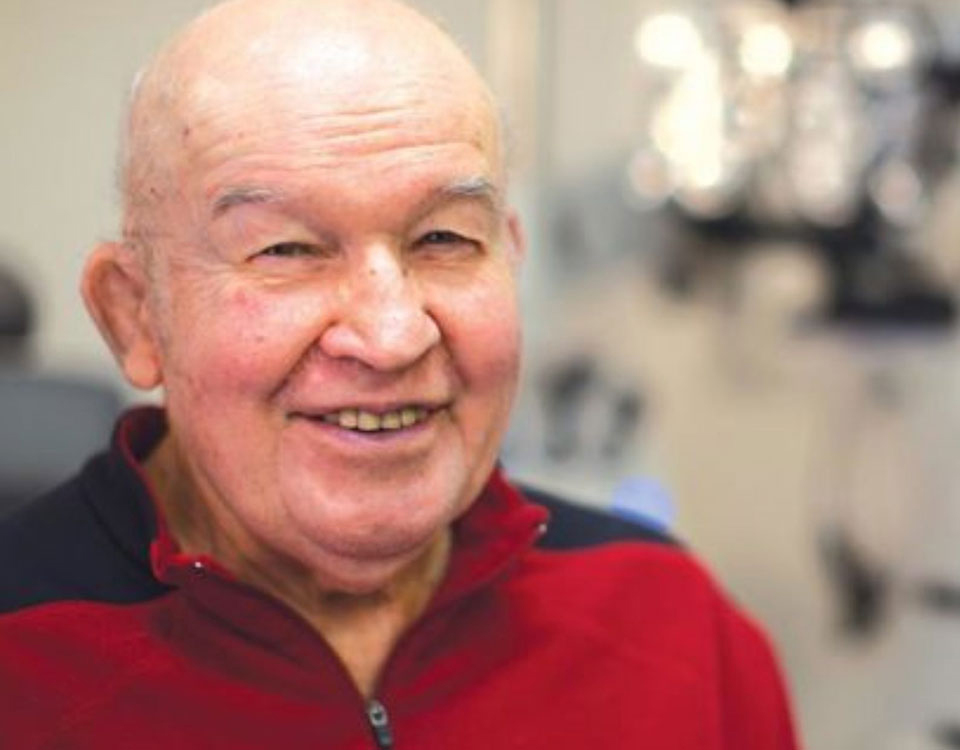If you have been told by your eye doctor that your vision is declining and can no longer be improved with stronger glasses, medicine or surgery, you may benefit from the expertise of our professional team at the Sight Center. The Sight Center is the region’s leading provider of vision rehabilitation services.
If you have difficulty with the following…
- Recognizing faces of friends or relatives
- Doing things “up-close” like reading, writing or sewing
- Picking out and matching the color of your clothes
- Reading street signs or the names of stores
- Doing things at home or work because the lights seem dimmer than they used to be
…then you may benefit from vision rehabilitation.
At the Sight Center, we’ll work together to help you learn to use your remaining functional vision to maintain your independence and help you continue to do the things you love in life.
What is Low Vision?
Low Vision refers to a visual condition that cannot be corrected by conventional eyeglasses, contact lenses or through surgical or pharmacologic means. There are a variety of disorders that affect the eye (many age-related) that can cause an individual to become visually impaired and these include: Macular Degeneration, Diabetic Retinopathy, Glaucoma and Retinitis Pigmentosa.
Low Vision Care is the evaluation and management of those that are visually impaired by eye care and vision rehab professionals. The goal of the care is to help those with low vision overcome the handicapping effects of their visual impairment. Based on individual lifestyle needs, solutions will be sought to help each patient achieve their visual goals. This may include the recommendation of products known as Low Vision Aids.
Low Vision Aids are special lens systems designed to magnify or illuminate images to improve one’s functional vision. Low Vision is actually the third most commonly occurring physical impairment in those over 65, exceeded only by heart disease and arthritis.
TYPES OF LOW VISION AIDS
Hand-held Magnifiers:
Hand-held magnifiers are ideal for near spotting tasks such as reading menus, price tags, maps, or prescription bottles.
Stand Magnifiers:
Stand magnifiers are great for extended visual tasks like reading books and newspapers or writing notes.
Spectacle Magnifiers:
Spectacle magnifiers are a hands-free solution that help make reading books, letters and newspapers easier.
Telescopic Vision Aids:
Telescopes can be used for distance viewing, such as watching television, and close-up tasks like knitting, sewing and doing crafts.
Absorptive Filters:
Filters help reduce glare and improve contrast so viewing is more comfortable. They can also assist with night driving and reduce eye strain while using digital devices.
Video Magnifiers:
Electronic Magnifiers provide extended magnification and allow for different contrast modes.
The Process
Evaluation
A low vision evaluation will be performed at the Sight Center after your eye doctor has done a thorough exam. Our appointment is not another eye exam but a chance to discuss how your vision loss is affecting your life and the goals you have for vision rehabilitation.
Magnification
Together we will work to develop a plan to meet your individual vision needs. The plan may include magnification and optical devices, a variety of lighting tools, alternative sensory techniques, or special low vision products to better assist you and your needs.
Follow-Up
The goal of this service is to provide instruction in visual skills and the use of low vision devices and lighting to maximize your remaining vision. These services are provided in our clinical setting but may also extend to the home, school, nursing home and rehabilitation center (depending on your circumstances).
Conditions that may cause vision loss include:
Call the Sight Center and schedule your appointment today!

